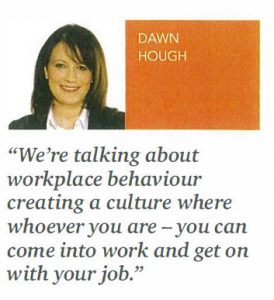
A Mental Health Check

Source: This article was featured in the Australian Institute of Company Director’s magazine, December 2016- January 2017 edition, authored by Domini Stuart.
Untreated mental health disorders costs Australian employers $10.9 billion each year. Domini Stuart explains why now is the time for boards to address mental health issues in the workplace.
In the Australian Institute of Company Director’s magazine, (December 2016- January 2017 edition), Pride Inclusion Programs Director Dawn Hough explains the need for creating a workplace culture where “whoever you are – you can come into work and get on with your job.” Dawn’s excerpt from the article is below and to download the full article, please click here.
The lesbian, gay, bisexual, transgender and intersex (LGBTI) demographic is vulnerable to heightened stress and anxiety at work as a result of what academics refer to as an “invisible stigmatised identity” – an identity an individual may choose to conceal for fear of stigmatisation. This requires specific attention from the board.
“The stereotypes some people hold about the way in which LGBTI people act, speak and look are only true for a very small percentage of the community. The majority of LGBTI people have the ability to hide their identity at work,” says Dawn Hough, director of Pride in Diversity, a workplace inclusion initiative of ACON, which was set up specifically to improve the mental health and wellbeing of LGBTI employees through the reduction of discrimination, bullying, harassment and homophobia within Australian workplaces.
“We’re talking about workplace behaviour creating a culture where whoever you are – you can come into work and get on with your job.” “Unless there are very clear visual cues of LGBTI inclusion, there is a risk that they will stay closeted for fear of negative repercussions on their workplace relationships and their career. This is not good for their mental health or well being, nor is it good for business in terms of productivity, engagement, authenticity and morale.”
The fear of being “found out” is a relentless pressure. “At work, you’re surrounded by people who can talk freely about their weekends, their weddings and the birth of their children – but when LGBTI people are asked about these things they face a constant dilemma,” Hough continues. “Do you lie? Avoid the subject? Or tell the truth and risk potentially damaging consequences? When this dilemma is at the forefront of your mind every single moment of your working life, it’s no surprise if it has a negative effect on your mental health.”
The LGBTI community suffers particularly high levels of suicide ideation, depression and other manifestations of poor mental health. Constantly feeling stigmatised can also lead to the use of drugs and alcohol as mechanisms for coping.
“There are consequences of exclusion,” says Hough. “LGBTI people will only feel safe enough to be themselves if inclusivity is genuine and clearly visible. People at a high level in an organisation often tell us that their company is LGBTI inclusive and that they don’t see any evidence of harassment or bullying, but it can be a very different story down on the ground. And chances are they also don’t see anyone who openly identifies as LGBTI either. Given that this demographic constitutes between seven and 10 per cent of the workforce, we would assume that, in this case, a lot of people in the organisation are in hiding. The question is why?”
Boards need to understand what inclusion means and the positive impact it has on the business as well as the health of LGBTI employees. “We’re not talking about taking a political stance or trying to change people’s values or beliefs,” says Hough. “We’re talking about workplace behaviour – creating a culture where whoever you are, you can come into work and get on with your job and be respected for who you are. Personal authenticity is a valued leadership trait; it’s something we should all be encouraging.”
As part of her job, Hough talks to boards about the challenges that LGBTI people face and what needs to be on the agenda. “We start by looking at where you are
now and what you can change,” she says.
“For example, your policies need to make it crystal clear that when you talk about families, you’re including same sex families; when you talk about partners you include same sex partners; and that parental leave applies to same sex parents. If inclusivity is not spelled out, LGBTI people will, by default, read themselves out of it.”
When LGBTI people join an organisation they scan for signs of inclusivity. “They’re looking for people who are out and comfortable, and also a network of peers,” Hough says. “Having a group of people you can talk openly to and feel safe with is important for all diversity groups, not just LGBTI.”
